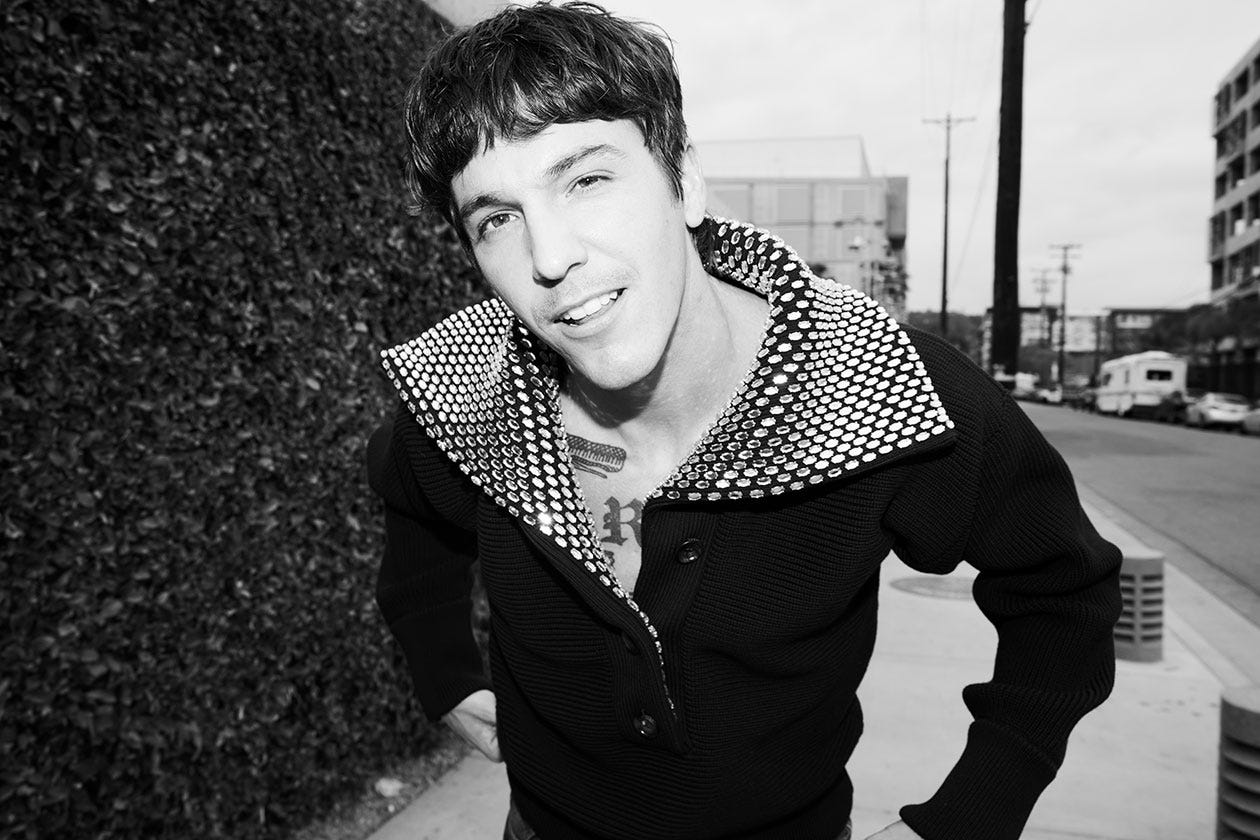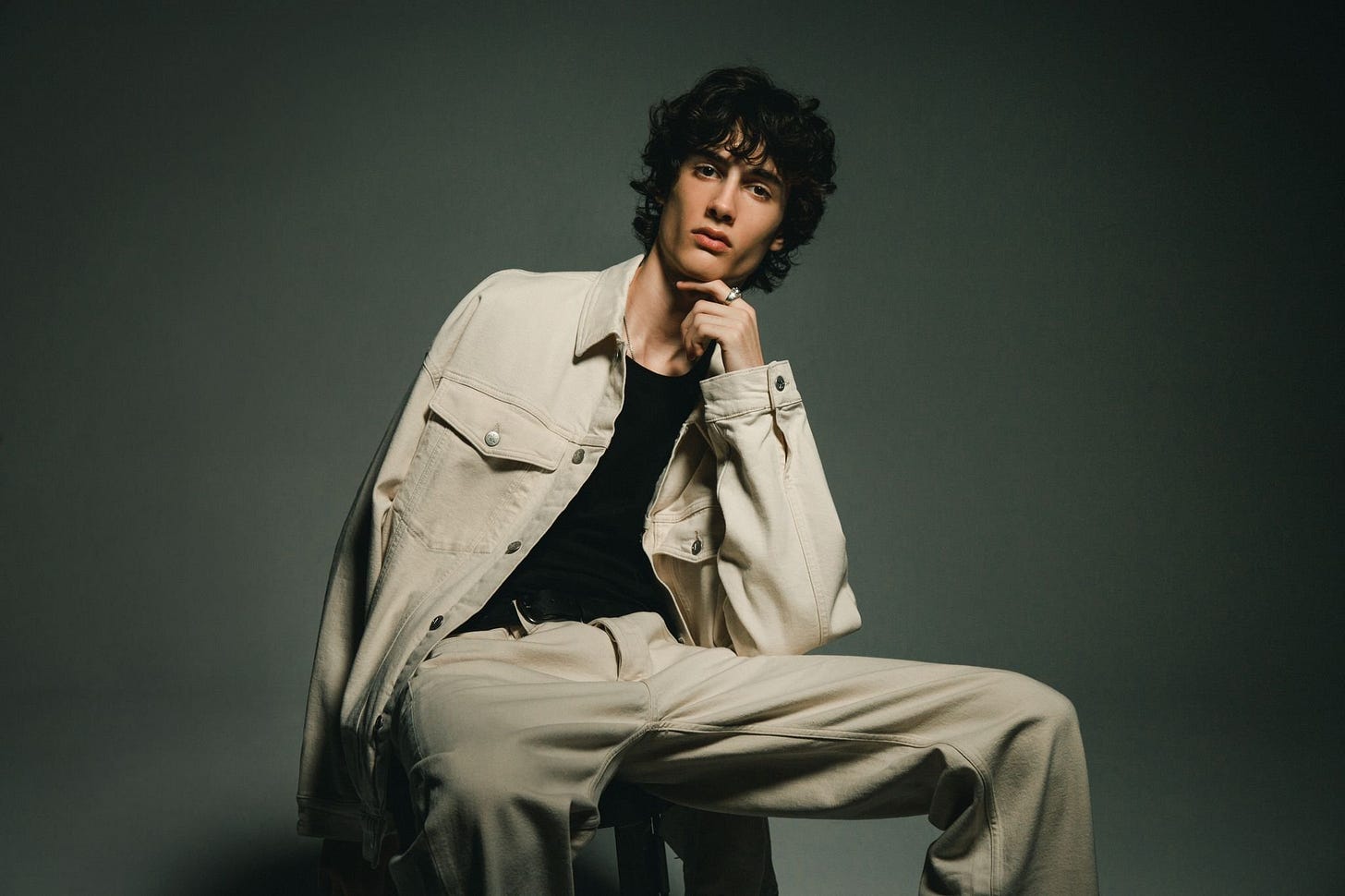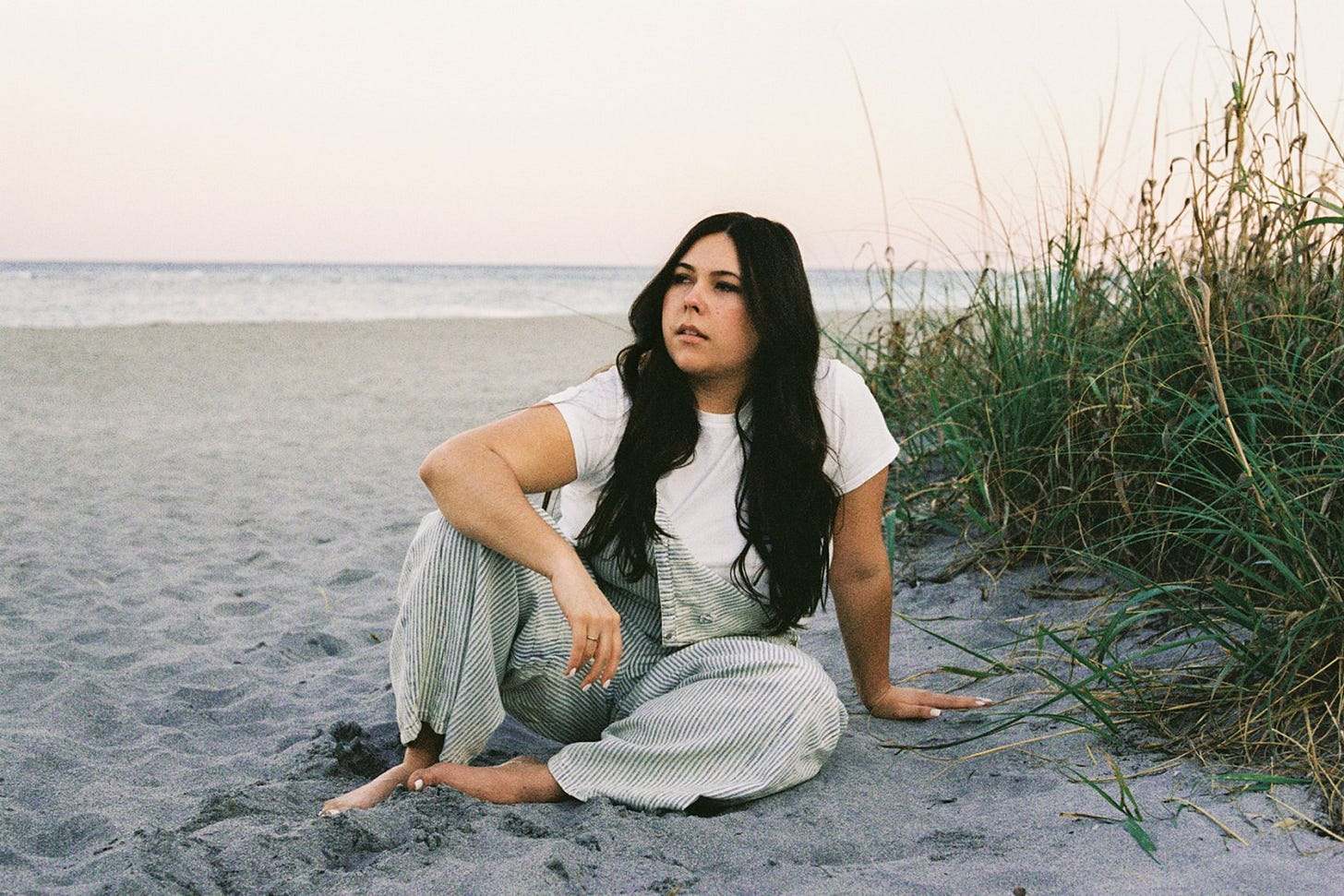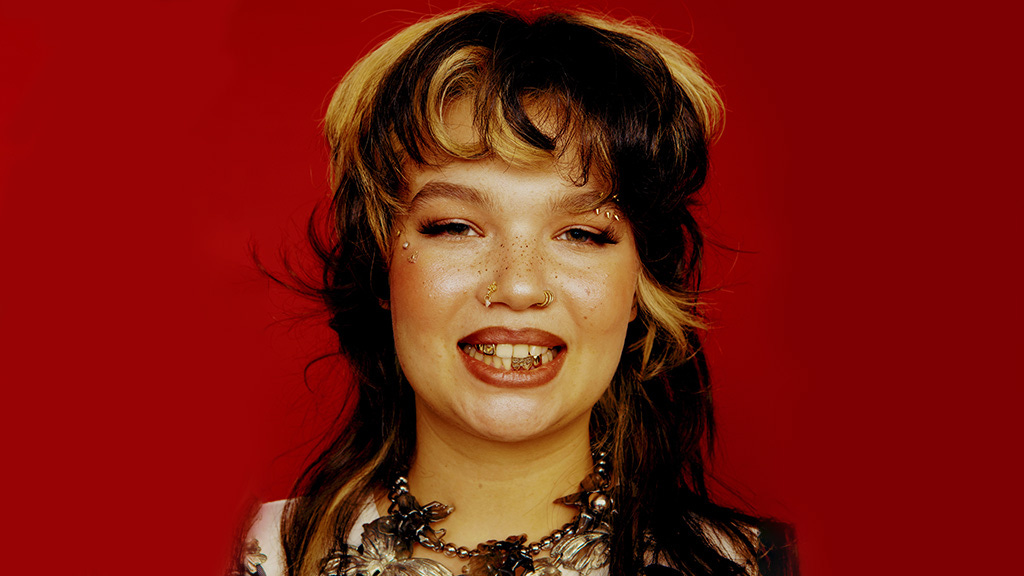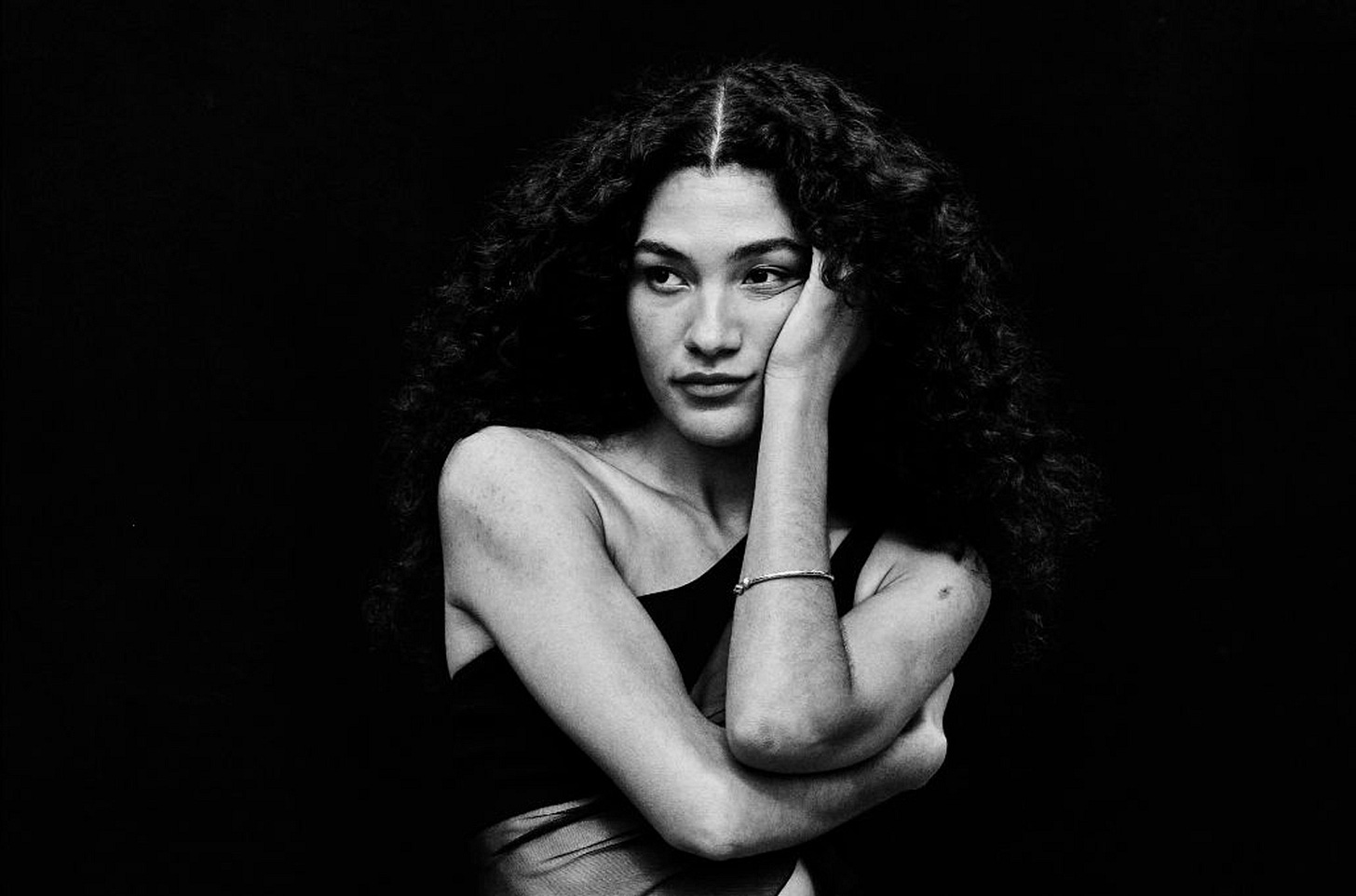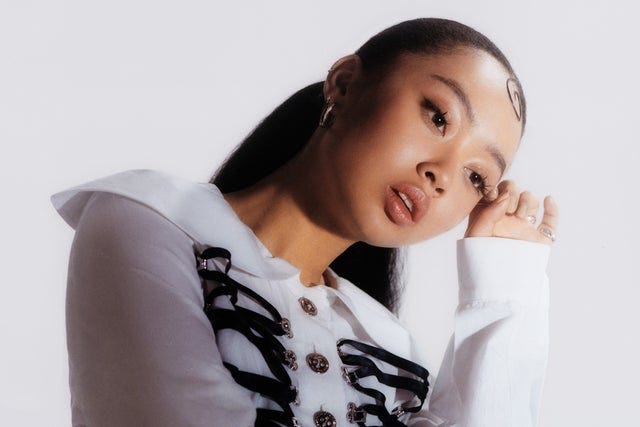Gen Z listens to a crazy amount of music. Like, they make up nearly 50% of Spotify’s global listenership. They listen to nearly 25% more music per day than millennials, the generation that was risking the family computer to make a mixtape for their middle school boyfriend of 3 days.
This group, aged 13 to 28, values emotional vulnerability, with diary-entry-like lyricism as the connective tissue, powerful vocals, and diversity representing vast backgrounds, lived experiences and genre experimentation. And queerness is part of that baseline — not a niche or side note. Whether it’s artists who are openly queer or those embraced as safe-space staples, younger fans expect identity and artistry to blend in a way that is seamless and authentic.
Millennial Influences Gen Z Thinks Are Cringe
Mariah Carey: Teens today know her as the Christmas meme queen, but her vocal runs and sultry sound shaped the vocal DNA of today’s powerhouse singers like Olivia Dean and Lola Young.
Avril Lavigne: Avril’s mix of bratty honesty and pop hooks shows up in Lola Young’s blunt breakup anthems and Gigi Perez’s confessional songwriting, minus the skinny ties and deep side parts.
2000s Emo Bands (Boys Like Girls, Green Day, My Chemical Romance, Fall Out Boy): Hot Topic may be dead, but the sound lives on. Sombr and Role Model both lean into that emo-pop/alt-rock energy—loud guitars, emotional lyrics and songs made for singing along.
Taylor Swift → Taylor didn’t invent diary-core (shout out to Alanis Morissette for that), but she mainstreamed hyper-specific storytelling at pop scale. Today’s Notes App lyricism is her legacy.
Sombr
SOMBR
Sombr has quickly become Gen Z’s latest “it boy,” blending confessional lyrics with radio-ready hooks that thrive on TikTok virality. His breakout singles Back to Friends and Undressed helped propel him to nearly 50M monthly listeners on Spotify, making him one of the fastest-rising names in the alt-pop/indie-pop lane. His ascent mirrors the new discovery pipeline — first a For You Page favorite, then a streaming staple, and now a fixture on award show radars.
He’s nominated for Best New Artist at the VMAs this year, a slot MTV often reserves for artists on the cusp of mainstream takeover, and I predict that he will take home the Moon Person. Critics point out that his appeal lies in how he repackages the emo-pop sound of the 2000s for Gen Z audiences — a blend of diary-entry angst and big, shout-along choruses.
ROLE MODEL
Role Model (aka Tucker Pillsbury) has carved out a loyal following with his confessional alt-pop, where moody, bedroom-produced tracks double as emotional soundtracks for Gen Z. His breakout single Sally, When the Wine Runs Out helped push his catalog past 1B streams and earned him roughly 9M monthly Spotify listeners. His sound is often described as “sad boy pop” — intimate, quotable, and tailor-made for TikTok edits and late-night scrolling.
While firmly in the alt-pop lane, Role Model also carries echoes of 2000s emo and pop-punk bands like Boys Like Girls or Dashboard Confessional — guitar-driven melancholy, emotional oversharing, and songs meant to be shouted in your bedroom. Beyond the music, his live shows are frequently described as safe spaces for queer teens, creating an inclusive environment that resonates with younger fans who prize community as much as catharsis.
GIGI PEREZ
Gigi Perez is a soul queen whose TikTok confessional tunes earned her 3 VMA nominations — a rare jump from bedroom videos to award show spotlight.
Perez resonates with younger audiences because she doesn’t polish away the rough edges. Her lyrics wrestle with grief, faith and identity, and her voice carries a raw emotional weight that doesn’t hide behind production tricks. That directness has struck a chord with queer listeners, especially, who see themselves in the openness of her writing.
LOLA YOUNG
Lola Young's style is rooted in a bold artistic lineage. She cites Joni Mitchell, Prince, Frank Ocean, and Anderson .Paak as key influences, blending introspective songwriting with genre-defying textures, and she attended the prestigious BRIT School, where both Amy Winehouse and Adele trained.
Her aesthetic is unapologetically unpolished, leaning into raw, gritty vocals and rough-around-the-edges production, embracing imperfection as a sign of authenticity. That vibe connects with young listeners who crave realness over sheen.
Lola’s track Messy exploded on TikTok, eventually topping the UK charts, and earned her two 2025 VMA nominations.
OLIVIA DEAN
Named Amazon Music’s Breakthrough Artist of the Year in 2021 and BBC Introducing Artist of the Year in 2023, Olivia Dean has quickly become one of the UK’s most celebrated new voices. Her debut album also titled Messy (2023) introduced her to a global audience, racking up over 1.1B streams and building her fanbase to more than 18M monthly Spotify listeners.
Drawing inspiration from Billie Holiday’s phrasing and Lauryn Hill’s emotional frankness, she blends classic soulfulness with contemporary pop sensibility. As a counterpoint to glossy, over-produced pop, Olivia has carved out a space defined by authenticity and timeless vocals. Critics praise her live shows, often backed by a full band, for their Motown-inspired richness and intimate storytelling — qualities that resonate deeply with Gen Z listeners looking for music that feels as “real” as it sounds.
GRIFF
Griff is a synth-pop darling who blends glossy, 1989-style production with diary-core lyrics. She broke through with her debut album Vertigo (2024) and picked up momentum opening for Sabrina Carpenter’s Short n’ Sweet tour. She’s also been featured on tracks with DJs like Zedd and Duke Dumont, giving her festival reach far beyond her own fanbase.
Unlike many of her Gen Z peers, Griff has built her following the “old-fashioned way,” meaning through touring, festival slots and steady word-of-mouth buzz as opposed to TikTok virality. That slow burn has made her a critic’s favorite and an artist Gen Z audiences discover organically, one live show or playlist add at a time.
RAYE
Raye has already cemented herself as a UK powerhouse, sweeping six Brit Awards in 2024 and earning three Grammy nominations in 2025. Her breakout single Escapism went viral on TikTok, introducing her raw lyricism to a global audience. But her discovery story isn’t just algorithm-driven: she’s also built recognition through high-profile collaborations (including Mark Ronson’s “Suzanne”) and headline-making performances like the James Bond tribute at the 2025 Oscars with Doja Cat and Lisa of BLACKPINK.
Her discography is defined by brutal honesty about survival, addiction, and industry transparency, paired with Adele-level vocals. For Gen Z, she’s proof that you can be both a viral star and a critically acclaimed artist — while for millennials, she feels like the continuation of a soul-pop lineage that prizes real voices and unflinching truth.
Even if they pretend they don’t care about millennial music, their playlists prove otherwise — Mariah’s vocal runs, Avril’s brat-pop angst, emo’s vulnerability, and Taylor’s diary-core all haunt the tracks they can’t stop playing.
But the trendline is shifting: rawness is in. Expect more messy anthems and fewer polished pop moments ahead, as Gen Z and Alpha double down on artists who sound unfiltered, vulnerable, and honest — voices that crack, lyrics that overshare, aesthetics that embrace the chaos.


